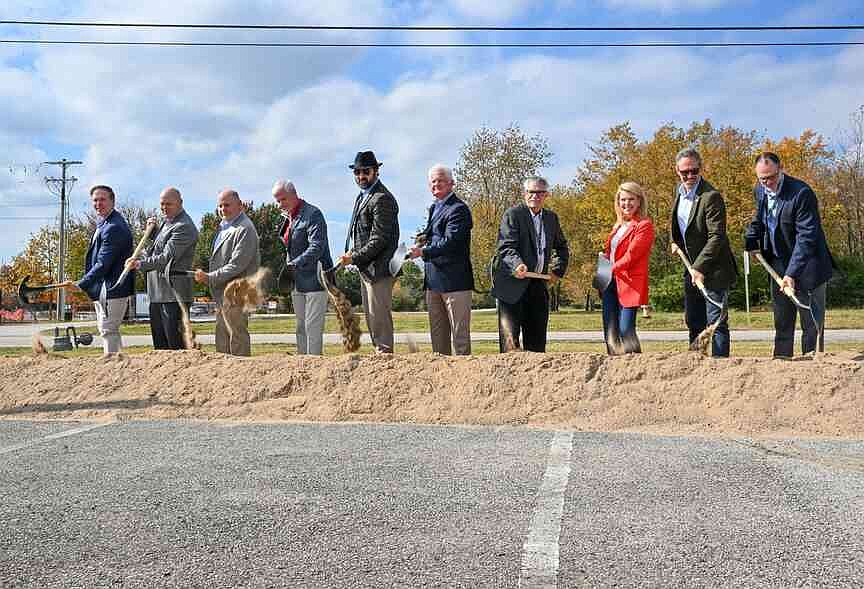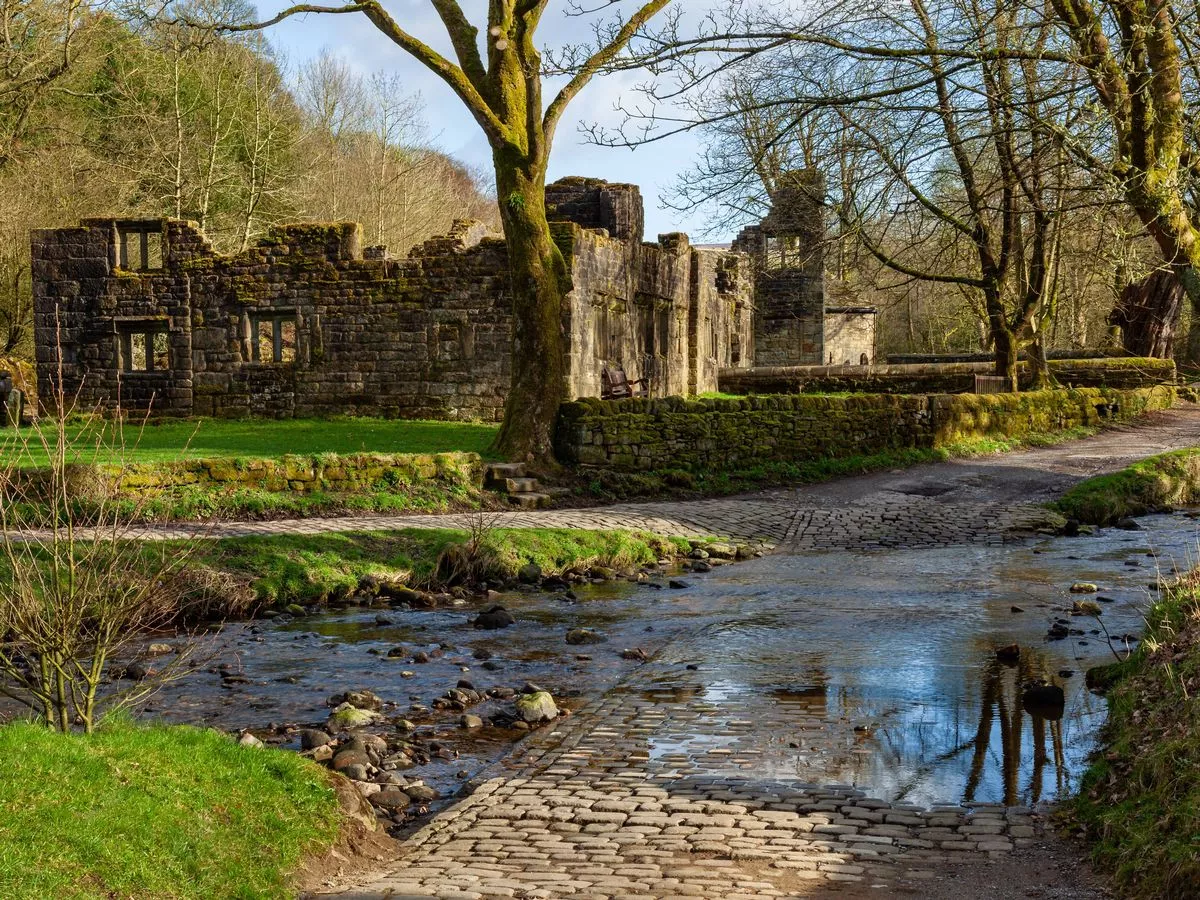Copyright Arkansas Online

FAYETTEVILLE -- A steady stream of cars, dump trucks, concrete haulers and semis hauling highway construction equipment on a two-lane road with no shoulders or sidewalks served as the backdrop Thursday for a groundbreaking that signaled the beginning of long-sought improvements along the Arkansas 112 corridor between Fayetteville and Bentonville. As the first of eight planned projects on Arkansas 112, the job will widen 1.44 miles of the highway from two to four lanes between Truckers Drive and Howard Nickell Road in Fayetteville. In addition to expanding roadway capacity, the project includes the construction of three roundabouts, two turnaround locations and a pedestrian tunnel. The $43.9 million project was awarded to APAC-Central Inc. of Fayetteville. It's expected to take about two years to complete. Once all eight projects are completed, Arkansas 112 will be a four-lane roadway with a center median stretching 18 miles between Fayetteville and Bentonville, according to Jared Wiley, director of the Arkansas Department of Transportation. "These projects will be shovel-ready in phases between now and 2028," Wiley said. "Once all the projects are completed, Highway 112 will be a four-lane facility with a raised center median to help improve mobility and safety. It will have 27 roundabouts between here and Bentonville." Wiley said roundabouts are a proven way to move traffic safer and more efficiently. "As many of you know today's event marks the culmination of many, many years of hard work and dedication by many people," Wiley said. Wiley said Arkansas 112 is the region's only north-south highway in the metro area west of Interstate 49, and it's become more and more congested in recent years due to the region's growth. "These eight widening projects will improve regional mobility, alleviating traffic on Interstate 49 when complete and providing our traveling public with options," Wiley said. "They can choose how they go north and south through the metro area." The transportation department is partnering with the city of Fayetteville, which is paying for a pedestrian tunnel under Arkansas 112 that will allow pedestrians to access Clabber Creek Trail. The department is also partnering with the Northwest Arkansas Regional Planning Commission, which was able to secure a $25 million federal grant to add a bike and pedestrian side-path along the length of the corridor. "Without that funding, we'd have been working a few more years to find funding to get that done," Wiley said. Of the seven remaining projects, three have funding secured, and the other four will be moved forward as soon as funding becomes available, Wiley said. "We estimate the entire widening project is going to cost about $100 million for construction," Wiley said. The cost will be about $700 million when right-of-way acquisition, utility relocation and other costs are added in, Wiley said. Philip Taldo, chairman of the Arkansas Highway Commission, grew up in Tontitown. He said the region's rapid growth has added more traffic to roads that were built several decades ago. "More people moving here equals more homes, more businesses, more schools and more vehicles on the roads, all this thanks to our local economy," Taldo said. "But, it also comes with a price -- increased traffic, longer travel times and congestion." A 2015 study of the Arkansas 112 corridor found the road needed more capacity and safety improvements, Taldo said. "As a businessman and a lifelong resident of Northwest Arkansas, I look forward to the completion of these improvements and the relief that they will bring to this heavily traveled corridor," Taldo said. "I also welcome the capacity it provides for the future growth." Tim Conklin, executive director at the Northwest Arkansas Regional Planning Commission, said the project represents a collaborative effort. "Today's really a testament about the collaboration on the local level, regional and state levels and a shared commitment to improving the safety, capacity and connectivity along the Highway 112 corridor," Conklin said. "This corridor goes through eight different cities from Fayetteville all the way to Bentonville." Once completed, the corridor will provide a 31-mile active transportation spine for pedestrians and cyclists similar to the Northwest Arkansas Razorback Greenway, Conklin said. "You'll be able to go from Kessler Mountain Regional Park in Fayetteville all the way to the new Bella Vista mountain bike chair lift park that's being developed today," Conklin said. Conklin said the overall project is projected to reduce car crashes in the corridor by an estimated 25% to 31% through access management; reduce intersection crashes by 78% to 82% with the addition of roundabouts; and, should reduce pedestrian and bike crashes with cars by 53% by adding sidewalks and a side path. "Over the next 20 years the safety and reliability benefits are projected to total more than $380 million. This includes $217 million in reduced fatal and serious injury crashes and $163 million in travel time saved," Conklin said. "But, beyond the numbers, this project is about people. It's about saving lives, strengthening our communities and providing more transportation choices." Congressman Steve Womack said the region's growth is not waiting on the needed infrastructure to be in place. "Because of congestion and the growth of this region, which is remarkable, people are looking for alternatives when they're stuck in bumper-to-bumper traffic and Highway 112 is that option,"Womack said. "So, it can't come fast enough to satisfy a lot of people who are looking for those options. This is precisely why the government is going to be required to assist. This is how the federal government should operate, supporting communities so they can improve the lives of people with great infrastructure."



